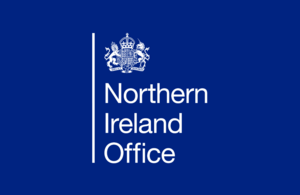Speech by the Minister of State for Northern Ireland The Rt Hon Hugo Swire MP at the Presbyterian Conference
British Society and Citizenship Challenges Today

We have now entered a decade that will witness many important anniversaries, beginning of course this year with the Home Rule Bill and the Ulster Covenant, before moving on to the Battle of the Somme, the Easter Rising and the Government of Ireland Act.
Each of these events will evoke different images and represent different understandings of our past.
But there is also an opportunity to come together in a spirit of mutual respect.
And we need look no further than Her Majesty the Queen’s ground breaking visit to the Republic of Ireland last year.
The key is to learn from the past and, as Her Majesty put it, to ‘bow to the past but not be bound by it’.
For too long we have concentrated on our differences as we each seek to navigate through what at times has been a difficult history.
Yet if we look at the past we can see strong evidence of a shared history.
We should remember that in looking at historical events one can be generous to another tradition without giving up ones own cherished beliefs.
I hope that spirit will guide us over the coming months and years.
Of course the Covenant being discussed today was a landmark event - not just in the unionist fight against Home Rule but in the foundation of Northern Ireland itself.
Yet the Covenant was not simply an Ulster phenomenon.
We should not forget that the first person to sign it, Edward Carson, was Dublin born and bred - and at the time a Dublin MP - who before 1911 had no connection with Ulster .
And, in Great Britain , a separate British Covenant, launched in March 1914, was signed by over 2 million people with signatures at one stage coming in at the rate of more than 30,000 a day.
While much of the focus of resistance to Home Rule was on Ulster , many of the great battles were played out in Westminster - with my Party and the Liberals very much on opposite sides at that time.
For me, the words of the Covenant that stand out most are when it speaks of “our cherished position of equal citizenship within the United Kingdom “.
That seems to me to hold a particular relevance as a century on we grapple once again with issues of citizenship and British society.
There is the debate over Scotland ‘s continuing membership of the United Kingdom as we move towards a referendum on independence.
The Government’s position on this is unambiguous.
We believe that Scotland is better of in the United Kingdom and that the United Kingdom is better off with Scotland .
Then there is the question of who or what constitutes the United Kingdom in the 21st Century. Clearly one of the issues is how we integrate those who have come from other countries and cultures more fully into British society while maintaining their distinct cultural traditions.
Let’s face it, the make up of society today is very different to what it was in 1912.
There is the issue of how we fix what the Prime Minister has called the ‘broken society’ by galvanising the Big Society and encouraging greater social responsibility.
In particular we have to move away from the idea that the state should be the sole, or indeed, best provider of public services, that the state is the same thing as society or that big government is good government. Why??
And we need to tackle the causes of inequality, family breakdown and poverty, rather than just the symptoms, by tackling worklessness and benefits dependency and by rebalancing our economy.
That’s why our welfare reforms coupled with the work programme are so important. We should always ensure the most vulnerable in society receive the help they need and also that those who can work should work. These, then, are some of the tremendous challenges which the Coalition Government at Westminster faces.
The Coalition Government is also deeply conscious of the central importance of our faith communities, charities and voluntary organisations in further developing the Big Society. Northern Ireland , where involvement in church, volunteering and giving are so prominent, needs few lessons on this subject.
We believe that faith has a vital role in modern society - a message that the Secretary of State made in the Vatican in February when he was part of the largest ever Ministerial delegation to visit the Holy See.
But on one thing we are clear, which takes us back to the theme of this conference.
We have an enduring belief that the United Kingdom remains the best constitutional and political framework for all our people.
The United Kingdom remains greater than the sum of its parts.
It respects difference, celebrates diversity and enables each of its constituent parts to promote their individual identities - particularly in the post devolution world.
Yet at the same time the United Kingdom enables us to come together as one nation - particularly in this Her Majesty’s Diamond Jubilee year.
Of course there are those who take a different view.
That is their democratic right, which we respect and of course that is in line with the consent principle enshrined in the Good Friday Agreement.
I began by talking about the decade of forthcoming commemorations and the
Opportunities the commemorations present to come together in a spirit of mutual respect; where we can learn about different understandings of our past without ceding our own cherished values .
And I end by paraphrasing the Covenant, one of those commemorations, with words which are true today; This Government remains committed to upholding the rights of every part of our diverse society as equal citizens within the United Kingdom .